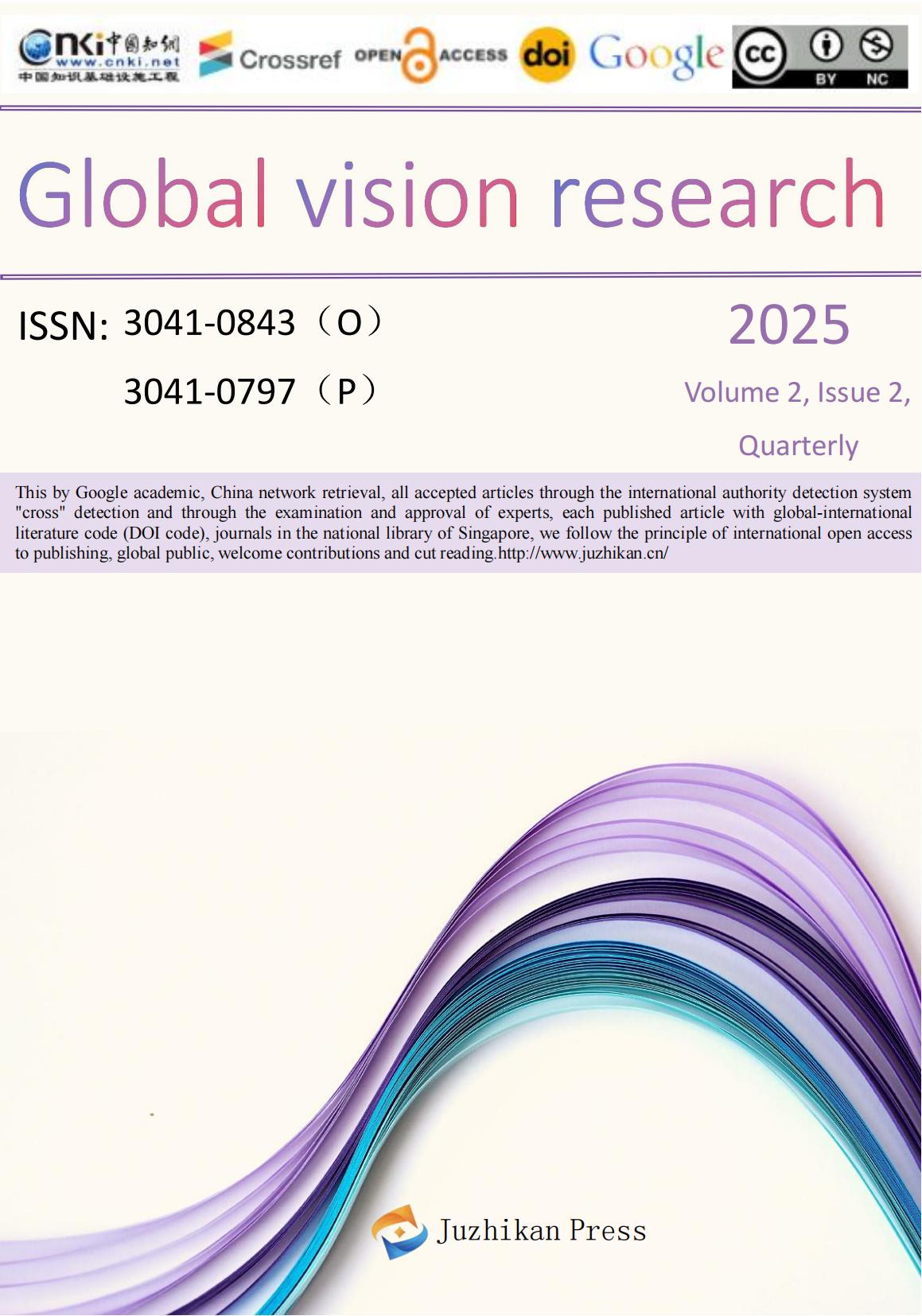
 info@juzhikan.asia
info@juzhikan.asia
 info@juzhikan.asia
info@juzhikan.asia
Research on the Current Problems, Influencing Factors, and Coping Strategies of Psychological Health of College Athletes
Bo Sun1,2 Seungjin Lee1*
1 Sehan University, Mokpo, Jeollanam-do, South Korea 58447;
2 Henan University,Kaifeng Henan,China,475000;
Abstract: This study systematically analyzes the psychological health problems of college athletes through literature research, questionnaire surveys, and interviews. Research has found that college athletes have psychological health problems such as anxiety, depression, inadequate stress management, and interpersonal relationship problems, which are influenced by individual traits, academic training conflicts, and lack of social support. Based on this, strategies such as building a collaborative management mechanism, optimizing the mental health service system, and strengthening the cultivation of psychological resilience are proposed to provide theoretical and practical references for improving the mental health status of college athletes.
Keywords: college athletes; Psychological health issues; Influencing factors; Response strategy
References
[1] The tension is,&Mao Zhixiong (2018). Sports psychology. East China Normal University Press.
[2] Zhang Yanhui,&Xu Chuanming (2012). Analysis of Anxiety Levels and Influencing Factors of Competitive Sports Athletes: Taking Table Tennis and Tennis as Examples. Sichuan Sports Science.
[3] Li Jie, Pang Yan, Liu Shijin,&Su Jianjiao (2024). Research on the Impact of Competition State Anxiety on Psychological Fatigue in Young Martial Arts Sanda Athletes: A Case Study of the 8th World Youth Martial Arts Championships in 2022. Journal of Henan Normal University (Natural Science Edition), 52 (2), 139-145.
[4] Yan Bo and Long Weiju (2021). Research on the Mechanism of Psychological Crisis Intervention for College Students Based on Psychological Resilience Intervention. Journal of Heilongjiang Teacher Development College, 40 (7), 3.
[5] Haolin (2011). Analysis of the causes of psychological barriers in sports among college students. Value Engineering, 30 (13), 1.
[6] Wang Chunlin (2023). The impact of stress training and social support on the pre competition emotions of short track speed skaters with trait anxiety. (Doctoral dissertation, Jilin University of Physical Education).
[7] He Liangqing (2023). The positive impact of combat training on the mental health of college students. Contemporary Sports Technology, 13 (36), 151-154.
[8] Jiali (2024). A study on the effect of mindfulness training on competition anxiety in excellent archers . (Doctoral dissertation, Shanxi University).
[9] Tension is, Ding Xueqin,&climax (2003). The correlation between pre match emotions, life satisfaction, and attention orientation. Journal of Beijing Sport University, 26 (6), 3.
[10] Yao Weiyu, Zhou Aiguo,&Liu Liru (2005). Research on Investigation and Regulation Strategies for Pre Competition Psychological Stressors of Athletes. Journal of Beijing Sport University, 28 (11), 2.
[11] Si Gangyan (2000). The localization and cross-cultural research of sports. psychology Sports Science, 20 (3), 5.
[12] Guo Jingjing. A Study on the Relationship between Sports Achievement Motivation and Psychological Fatigue of College Athletes: A Case Study of College Volleyball Players in Henan Province. (Doctoral dissertation, Yanbian University).
[13] Zheng Hongwei, Sun Shubin, Yao Lan, Lei Zhao,&Chen Xiaohua (2012). A Study on the Psychological Health Status of High level Athletes in Ordinary Universities in China. Science and Technology Innovation, 000 (033), 208-208.
[14] Tan Xianming and Luo Donglin (2007). Comparative analysis of psychological health and related factors between athlete college students and non athlete college students. Journal of Beijing Sport University, 30 (11), 3.
[15] Wu Yonghui, Song Hui,&Liu Jiajie (2006). Analysis of the Psychological Health Status of College Athletes in Hebei Province. Chinese School Health, 27 (7), 2.
[16] Peng Binzhan (2024). The impact of psychological counseling on the mental health of high-level athletes. Heilongjiang Science, 15 (11), 109-111.